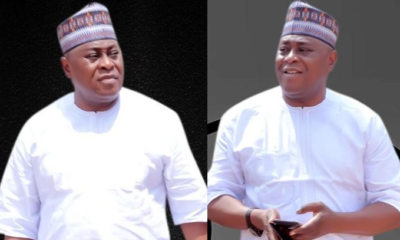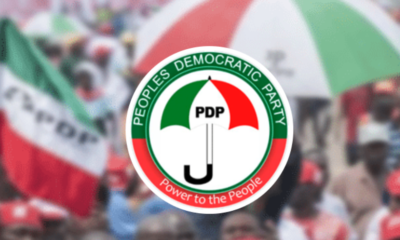News
Digital divide in Nigeria’s ICT: What Concerns Tinubu?

By Cami Ezewnwa
Digital divide in Nigeria’s ICT sector may not be a front page topic for now, but that is only true for those who have not dispassionately x-rayed its overral criticality.
ICT, acronym for Information Communication Technology, does not only have an increasing relevance in our daily lives, but has become dominant.
Aside its wide use in an election period, one of the simplest ways to understand the importance of ICT is to imagine a typical day in our lives and businesses without android phones, laptops, computers and digital cameras amongst others.
In business transactions, at board meetings, in the classrooms, at home and indeed political party secretariats, ICT is deployed in varying degrees through various gadgets.
READ ALSO: UPDATED: Picture Of Police Officer Who Murdered Lagos Female Lawyer On Christmas Day Surfaces Online
News sourcing, processing and dissemination daily, would not be possible without the contribution of ICT, especially now that most media platforms have embraced digital journalism.
However, despite the extent of use of ICT, digital penetration in our clime remains an issue.
In other words, digital divide in Nigeria’s ICT is an issue as the country prepares to enter the next elections.
Digital divide in Nigeria’s ICT?
When there is inequity in information access in a country or society, digital divide is believed to have occurred.
Level of socio-economic development, government policies and priorities, low literacy levels, poverty, geographic location and even education policies are all factors that affect digital divide.
READ ALSO: The Strange Thing About The 2023 General Elections In Nigeria

File photo on ICT courtesy wikimedia
And What Concerns Tinubu in all these?
The all Progressives Congress (APC) presidential candidate in the 2023 general election, Asiwaju Bola Ahmed Tinubu, as part of his electoral promises has touched on the issue of digital divide in the country, promising what he has described as digital revolution should he be elected in the elections.
He says he plans to transform Nigeria into a first smart nation in Africa, a statement, Mr Josh Audu, the Director General of Youths In Technology Support Organisation.
According to Audu, Tinubu has already set up what he described as the smart nation programme office and website, to drive his initiative in bridging the digital divide in the country, using youths.
“This is a continuation of my plan and policies for the new Nigeria. I am in charge of the national rebirthing agenda, which aims to champion the new Nigeria of our dreams.
READ ALSO: What Tinubu Promised Abia State During APC Presidential Rally
“This is aimed at establishing goals, such as becoming Africa’s first world-class tech-driven state, and a transformation plan to become a smart nation, utilising technology to transform how our families, businesses, and people live, work, and enjoy.
“We must lead the way in envisioning, imagining, and innovating in Nigeria if we are to fully appreciate the boundless opportunities that come with the Smart Nation and digital realities, ” Audu quoted Tinubu as saying.
According to him, The Tinubu Center for Smart Nation initiative, as a major step towards bridging the digital divide in the country, and taking Nigeria to new heights.
As laudable as the initiative, it is expected however to go beyond a campaign promise to really impacting the technological advancement of the country.



























